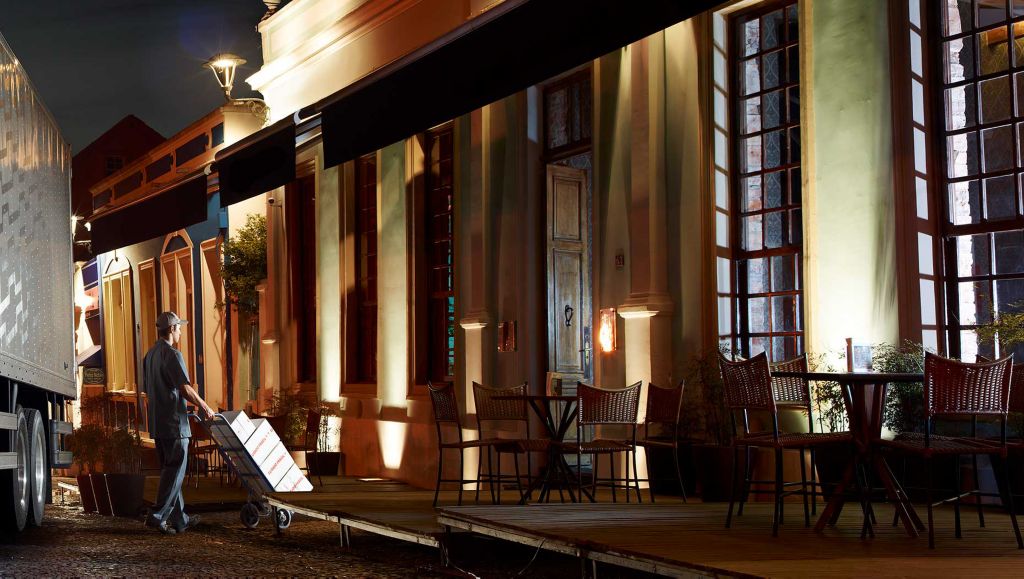Volvo Trucks wants to see fewer trucks in urban rush-hour traffic


"By using electrically powered and quieter trucks for goods transport in urban areas, we meet several challenges simultaneously. Without disturbing noise and exhaust gases, it will be possible to operate in more sensitive city centres. Transport may also take place throughout less busy periods, for example in late evening and at night. This will reduce the burden on the roads during daytime rush-hour traffic, allowing both the road network and vehicles to be utilised far more effectively than today", says Claes Nilsson.
A recent project, Off Peak City Distribution, conducted by Stockholm City, Sweden and KTH Royal Institute of Technology studied the effects of goods transport at night in central Stockholm. Since the trucks avoided having to operate in rush-hour traffic, transport assignments were carried out in one-third of the normal time.
In order to improve the quality of life in urban environments more sustainable transport solutions need to be adopted. With well-developed logistics and more effective utilisation of roads in the evenings and at night, it is also possible for many smaller vehicles to be replaced by fewer but larger vehicles, thus further contributing to lower emissions and less traffic. A distribution truck has just over ten times the load capacity of a regular van. If a larger proportion of transport assignments could be carried out during hours when fewer people are on the road, this will also significantly reduce the risk of accidents.
"Our technology and knowhow within electromobility are based on proven commercial solutions already in use on Volvo's electric buses, and solutions that were introduced in Volvo's hybrid trucks as far back as 2010. The vehicles themselves are only one part of what is needed for large-scale electrification to succeed. Enabling long term sustainable transport is a complex issue that requires a holistic and wide range of measures.We are working closely with customers, cities, suppliers of charging infrastructure and other key stakeholders to create the necessary framework for electrical trucks", says Jonas Odermalm, Head of product strategy medium duty vehicles at Volvo Trucks.
"We belive in full electrification for urban distribution as a first step. However we are working with electrification for other transport applications. This is only the beginning", concludes Claes Nilsson.
Background
According to the World Health Organization and the UN, 60 per cent of the planet's population - about 5 billion people - will live in cities by 2030. This is an increase of just over 1 billion compared with current levels. This swift pace of urbanisation will impose immense demands on traffic systems, which in many cases already are insufficient to meet current needs. Within the EU it is estimated that congestion and related traffic problems cost about 100 billion euros per year.
Link to high resolution images
23.rd January 2018